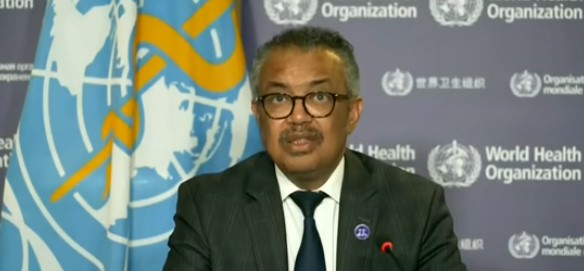Newsman: The World Health Organization has declared mpox, an infectious disease caused by the monkeypox virus, a global health emergency . Officials announced monkeypox virus, a global health emergency on Wednesday following an outbreak of the viral infection in the Democratic Republic of Congo that has spread to neighboring countries in Africa. Mpox, formerly called monkeypox, is caused by infection with the monkeypox virus, according to the U.S. Centers for Disease Control and Prevention. The virus is similar to the one that causes smallpox, the CDC says. It is not related to chickenpox.
Mpox usually starts with a rash that can look similar to chickenpox, syphilis or herpes. The rash typically progresses to small bumps on the skin, then to blisters that fill with whitish fluid. The illness is often accompanied by fever, headache, muscle aches, back pain, low energy and swollen lymph nodes.
The World Health Organization declares mpox global health emergency for the second time in two years, The declaration follows mpox outbreaks in 13 African nations, including the Democratic Republic of Congo, Uganda, Rwanda, Burundi, the Central African Republic and other nations, the Africa Centers for Disease Control and Prevention said.
A “public health emergency of international concern,” or PHEIC, is the WHO’s highest level of alert, and it can accelerate research, funding and international public health measures and co-operation to contain the disease.
“The detection and rapid spread of a new clade of mpox in eastern DRC, its detection in neighboring countries that had not previously reported mpox, and the potential for further spread within Africa and beyond is very worrying,” Tedros said during the briefing.
On Monday, the Africa Centres for Disease Control and Prevention (Africa CDC) – the continent’s top health agency – declared mpox a public health emergency of continental security (PHECS) – the first such declaration since the Africa CDC’s inception in 2017..
WHO published a report on the same day, the that found there were a total of 934 new laboratory confirmed cases of mpox and four deaths from 26 countries in the month of June, “illustrating continuing transmission of mpox across the world.”
It’s the second time in two years the WHO has issued an emergency for the mpox virus. New forms of the virus, known as clade I and cladeIb, appear to spread more easily through routine close contact, including sexual contact. In 2022 clade IIb version was spread largely through sexual contact among men who have sex with men — was known as
More than 17,000 cases have been reported across Africa in 2024 and 517 deaths have been reported on the African continent this year according to the Africa Centres for Disease Control and Prevention. That’s a 160% increase compared to the same period last year. Mpox has two distinct viral clades, I and II. Both versions can spread through close contact with an infected person or via direct contact with infected animals or contaminated materials.
“It’s clear that a coordinated international response is essential to stop these outbreaks and save lives,” said WHO Director-General Tedros Adhanom Ghebreyesus.
The CDC recommends that people who are exposed to the monkeypox virus — or who belong to groups with an elevated risk of infection, such as men who have sex with men — receive two doses of the vaccine. It is effective against both clades of mpox.
The U.S. Department of Health and Human Services said Wednesday that the country is well prepared to detect and manage any clade I cases that might arise, since health officials monitor for mpox through clinical testing and wastewater surveillance.
If a clade I cases were detected, “we expect it would cause lower morbidity and mortality in the United States than in the DRC,” HHS said in a press release.
A vaccine for mpox is available in the U.S. but not generally available in the DRC. The U.S. is donating 50,000 doses to address that gap, HHS said.

